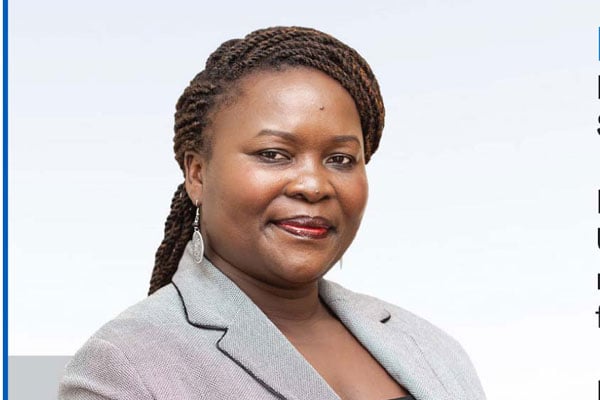Elections need to be both possible and meaningful

Emilly C. Maractho
What you need to know:
- Ms Emily C Maractho says: We need to establish what is hindering us from engaging in politics without anger...
The events of last week have left me shaken. I watched news and felt numb. I spent the rest of the week in my house. I may be one of the proverbial cowards.
Of course, it is not possible that I will live the rest of the days before January 14, 2021, hiding in a corner at my house. When you are in the house, hearing gunshots, you do not feel safe really, it still creates incredible fear. I spent days off social media because it was depressing.
Many of us may take comfort in the solid promise of President Museveni to crash ‘these hooligans’, and feel safe. But that is for a moment. Because sooner or later, you realise that the hooligans will be crushed, but the issues will not go away. It may seem, we have not had the capacity to listen, for a very long time.
The hooligans who replaced ‘the idiots’ of 2001 will be replaced by a different group of ‘mobsters’, because the issues will not go away. Those too will be crashed. Then a new group of ‘ruffians’ will show up in 2026. Perhaps the issues will remain.
The man we characterised as angry, bitter, and hungry for State power, Dr Kiiza Besigye, surprising many, gave us the gift of perspective by getting out of the way, perhaps hounded by the many voices and growing narrative that he had become our problem, standing in the way of democracy.
Because the issues did not go away, we are facing a different kind of anger – this time in the name of young people determined in a different way, with different methods. Eventually, there will be nothing left to crash. Then what?
What if for once, we recognised that there is a problem, and it lies elsewhere, and will not be fixed by crashing these misguided, ill-mannered and undisciplined group of people that we have conveniently called hooligans or those who oppose the leadership of the National Resistance Movement (NRM) for sheer ingratitude, lack of appreciation and blindness to progress?
What if for once, we trusted in the mighty power of the ‘mass’ behind our mass party, NRM or Kasule Lumumba’s mobilisation skills, for which she is very qualified and well paid, and give Ugandans the opportunity to participate in elections without being vilified for their choices?
What if the police, for once accepted that all candidates nominated to participate in the electoral process are in a public contestation and will be shown the way or how unpopular they are at the ballot?
What if the army understood that they are ruining the future of this country, and there will be nothing left to secure if they continue along the path of excessive force?
When you take a democratic route, there are some basic things that even at the level of pretence, should be there. Participation is the very least of these things. And participation, must be seen to be both possible and meaningfully applied. As the public begins to realise that they are called to a process that is neither possible not meaningful, we cannot predict where it will lead us.
For a very long time, Ugandans have had a lack of civic consciousness needed for democracy to function.
That may be changing. This past week has provided some indications of an increasing level of political consciousness and awareness among ordinary people. And that these people are beginning to make demands that in the past, would have not been imagined.
First, I was taken aback, by calls to boycott a television station that the public saw as biased in their reporting. While the public has never had the kind of media literacy needed to make demands on media houses, this is not something to take lightly. It represents a certain kind of consciousness.
The call may be driven by anger of a people still bleeding but it cannot be ignored.
There were counter calls by friends in government, alarmed by another television station newscast. Both are important for enabling the media to check itself, provided they do not mean threats to media.
Second, journalists quickly became victims not just of the power arrangements of the police and the military, but also the public, accusing the media of not doing enough to report their grievances.
These events raise concerns about the safety of journalists and mean they will walk a tight rope. But it could mean a new era of the public’s appreciation of the role of media.
It seems we need some soul searching. We need to establish what is hindering us from engaging in politics without anger, bitterness, stones and guns. We need to conduct elections without appearing to be at war surrounded by tanks.
There is no justification for forceful participation, or that people need to demand forcefully to participate.
But often that happens, when civic space has disappeared.
Ms Maractho is the head and senior lecturer, Department of Journalism and Media Studies at UCU.
[email protected]




